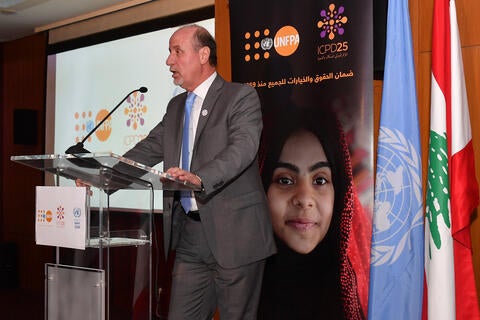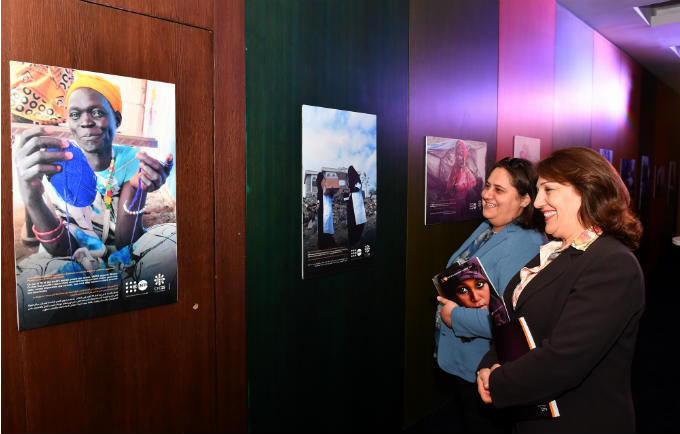Marking the 50th anniversary of the creation of UNFPA, the UN agency for sexual and reproductive health, this year’s State of the World Population Report (SWOP) was launched in the Arab region on 10 April. The launch took place in a side event during the Arab Forum on Sustainable Development in Beirut. The launch was attended by H.E. Richard Kouyoumjian, Lebanon's Minister of Social Affairs, and Dr. Rola Dashti, the Executive Director of UN ESCWA.
Under the title of “Unfinished Business”, the report traces the progress the world has made since the adoption of the Programme of Action of the International Conference on Sustainable Development (ICPD) by 179 world leaders in 1994. At the time, the ICPD revolutionized thinking and acting on population matters by shifting the focus from demographic targets to human lives. The ICPD clearly stipulated that individuals have a basic human right to decide whether to have children, how many and when. For the first time, the ICPD recognized women’s empowerment as a precondition for achieving sustainable development.
During the SWOP regional launch, UNFPA’s regional director for Arab states, Luay Shabaneh, identified humanitarian crises as the single biggest challenge facing the ICPD agenda beyond its 25th anniversary.
“The Arab region is home to some of the worst humanitarian crises in the world,” Dr. Shabaneh said, “This year, there are an estimated 14.4 million pregnant women who need humanitarian assistance in the Arab states region.”

launch of SWOP. ©UNFPA_Lebanon
At the heart of UNFPA’s mandate is the commitment to end maternal death, end unmet need for family planning and end gender-based violence and harmful practices. All three commitments are enshrined in the ICPD Programme of Action, and are integral to the agenda of the Sustainable Development Goals (SDGs). This year’s SWOP reports that the region has made significant progress on these commitments.
More women than ever have access to family planning. The prevalence of modern contraceptives among women has increased from 33 per cent in 1994 to 43 per cent this year. Maternal deaths dropped by 43% since the adoption of the ICPD Programme of Action 25 years ago. Harmful practices like Female Genital Mutilation (FGM) and Child Marriage have also decreased in the past two decades.
However, there is significant inequality in women’s ability to access family planning and reproductive health services based on their income, geographical location or whether they belong to a marginalized minority.
In humanitarian settings, maternal death and child marriage rates are increasing. And although FGM is slowly receding among younger generations, it continues to affect 55% of Arab girls between 15 and 19 years of age.
“Despite progress, there is a long way ahead of us in our quest for human-centric sustainable development,” Mr. Shabaneh concluded.
To view an interactive illustration of the report, please visit: unfpa.org/swop


